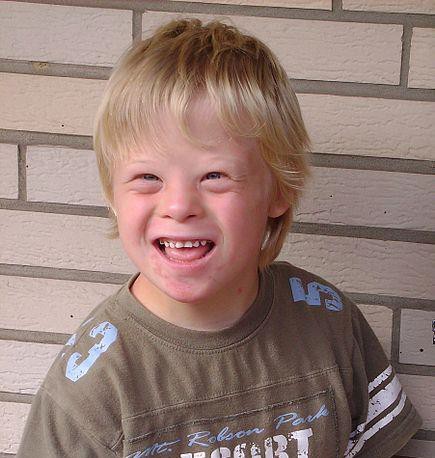91 Intellectual Disabilities
One end of the distribution of intelligence scores is defined by people with very low IQ. Intellectual disability (or intellectual developmental disorder) is assessed based on cognitive capacity (IQ) and adaptive functioning. The severity of the disability is based on adaptive functioning, or how well the person handles everyday life tasks. About 1% of the United States population, most of them males, fulfill the criteria for intellectual developmental disorder, but some children who are given this diagnosis lose the classification as they get older and better learn to function in society. A particular vulnerability of people with low IQ is that they may be taken advantage of by others, and this is an important aspect of the definition of intellectual developmental disorder (Greenspan, Loughlin, & Black, 2001).
In this video, Dr. Rachael Ferrari defines intellectual disability and describes the levels of intellectual disabilities.
One example of an intellectual developmental disorder is Down syndrome, a chromosomal disorder caused by the presence of all or part of an extra 21st chromosome. The incidence of Down syndrome is estimated at approximately 1 per 700 births, and the prevalence increases as the mother’s age increases (CDC, 2014a). People with Down syndrome typically exhibit a distinctive pattern of physical features, including a flat nose, upwardly slanted eye, a protruding tongue, and a short neck.

In this video, Miami Children’s Museum participates in Down Syndrome Awareness month with the story “Different-A Great Thing to Be” by Heather Avis (author) and Sarah Mensinga (illustrator) read by children with Down Syndrome and their family members.
Fortunately, societal attitudes toward individuals with intellectual disabilities have changed over the past decades. Laws such as the Americans with Disabilities Act (ADA) have made it illegal to discriminate on the basis of mental and physical disability.[1]
In this video, we get a glimpse of a special education classroom as a special education teacher talks about working with children with multiple disabilities, including severe and profound intellectual disabilities.
- Child Growth and Development by Jennifer Paris, Antoinette Ricardo, & Dawn Rymond (modified by Courtney Boise). ↵

